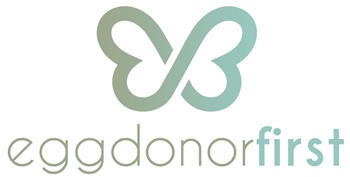
Egg donation is a generous and life-changing gift that helps individuals and couples achieve their dreams of parenthood. If you’re considering becoming an egg donor, you might be wondering about the screening process and what tests you’ll need to complete.
Screening is a crucial step in the egg donation journey, ensuring that donors are in good health, have a strong ovarian reserve, and are emotionally prepared for the process. These tests are designed to protect both the donor and the intended parents, increasing the chances of a successful outcome. In this article, we’ll break down the different tests performed during egg donors screening and why each one matters.
Medical History and Initial Consultation
The first step in the egg donor screening process involves a thorough review of your medical and family history. During an initial consultation, you’ll answer questions about your overall health, menstrual cycle, past pregnancies (if any), and any medical conditions that run in your family.
Why It Matters:
- Helps identify any genetic or reproductive health conditions that could affect the donation process.
- Ensures you are physically healthy and a good candidate for egg donation.
- Determines if you meet the basic eligibility criteria for donation (e.g., age, BMI, lifestyle factors). privacy and comfort level is crucial to maintaining a positive experience for everyone involved.
Physical Examination
A routine physical exam is conducted to evaluate your general health. This exam is performed by a reproductive specialist and includes checking vital signs, assessing overall well-being, and examining reproductive health.
Why It Matters:
- Confirms that you are in good physical health.
- Ensures your reproductive system is functioning properly and capable of producing healthy eggs.
- Identifies any medical conditions that might interfere with the donation process.
Blood Tests
Blood tests are a key part of egg donors screening and help assess various aspects of your health and fertility. These tests include:
Hormone Testing
- Measures hormone levels such as Follicle-Stimulating Hormone (FSH), Anti-Müllerian Hormone (AMH), and Estradiol.
- Determines your ovarian reserve (how many eggs you have).
Infectious Disease Screening
- Tests for HIV, Hepatitis B & C, Syphilis, Chlamydia, Gonorrhea, and other infections.
- Ensures the safety of the intended parents and any resulting pregnancy.
Genetic Carrier Screening
- Identifies if you carry genes for inherited conditions like Cystic Fibrosis, Sickle Cell Anemia, or Tay-Sachs Disease.
- Allows intended parents to make informed decisions based on genetic compatibility.
Blood Type & Rh Factor
- Determines blood type compatibility with intended parents.
- Important for potential future pregnancies and medical considerations.
Ultrasound Examination
A pelvic ultrasound is used to assess your reproductive health. During this exam, a doctor will check the condition of your ovaries and uterus. They will also perform an Antral Follicle Count (AFC) to estimate the number of eggs available for retrieval.
Why It Matters:
- Confirms the presence of a healthy ovarian reserve.
- Helps doctors plan the best stimulation protocol for the donation cycle.
- Identifies any anatomical issues that may affect the donation process.
Psychological Screening
Egg donation is an emotionally significant process, so a mental health evaluation is required to ensure that you are prepared for the journey. A licensed mental health professional will discuss topics like your motivations for donating, expectations, and any concerns you might have.
Why It Matters:
- Ensures you understand the emotional aspects of egg donation.
- Helps confirm that you are making an informed and voluntary decision.
- Provides a space to discuss any personal concerns or questions about the process.
The Importance of Screening for Egg Donors
The egg donor screening process might seem extensive, but it plays a vital role in ensuring the health and safety of both the donor and the intended parents. These tests help:
- Protect your well-being throughout the donation cycle.
- Increase the chances of a successful egg retrieval and pregnancy.
- Prevent complications that could arise from undetected health conditions.
If you’re considering becoming an egg donor, it’s normal to have questions about the screening process. Remember, these tests are designed to ensure the best possible experience for everyone involved.
Conclusion
Egg donation is a beautiful and selfless act that requires careful medical and emotional consideration. While the screening process may seem overwhelming at first, it is a necessary step to safeguard your health and the success of the donation.
If you’re ready to take the first step, reach out to an experienced egg donor agency or fertility clinic to learn more. Your journey could help build the family that someone has been dreaming of.
Would you like to get started? Contact us today to begin your egg donors screening process.





